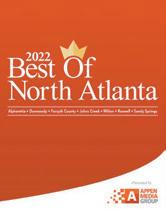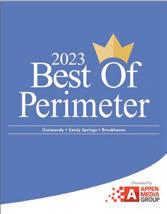
 August 2023 Special Section
August 2023 Special Section


 August 2023 Special Section
August 2023 Special Section


Brought to you by
- Michelle Wilson, Attorney, Wilson Legal


Recently a couple asked Bank of America to add their trust as the beneficiary or Pay-On-Death (POD)

Payee of their joint checking account at the bank. They were denied. Bank of America is not the first bank to do this. It seems several banks believe that a POD Payee can only be added to a checking account after a joint owner dies. What if both owners die together such as in a car accident? Now we have a checking account with no living beneficiary requiring an executor to be approved after paying for and going through the probate process – a process which we are trying to avoid by creating a revocable trust for the couple in the first place. Our Georgia Code states in O.C.G.A. Section 7-1-812(b) that a POD account belongs to the original payees (whether there are 1 or more)) during
their lifetimes. This means that our code anticipates the probability that more than one person may own a checking account jointly or together with equal rights to access the money and that they can have a beneficiary (such as their trust) named as the POD payee on the account. Later in Section 7/1/818 our Georgia Code states that a POD payee may receive payment upon proof that all the original payees have died.
So why is Bank of America stopping my clients from protecting themselves from probate by naming their trust as the POD payee or beneficiary on their joint checking account? I called to find out, but they wouldn’t answer their phone. I’ll be stopping in for a chat next week. Stay tuned for the answer.
If you have questions about whether your trust is named as POD payee or beneficiary correctly on your accounts, call for one of our paid strategy sessions and bring your statements and any other printout that shows who your beneficiaries are. A law firm, like Wilson Legal, can help you make sure you are getting all the advantages of your trust.

Many people think having a Will is enough to protect their assets, but a Will is best used as a last resort rather than your primary plan.
probate case had to be closed out and missed the deadline to file those reports, so the Probate Court removed her as Executor.
Over our two decades of helping people create their estate plans, we’ve seen a lot of probate cases that sadly resulted in the heirs losing control over their beloved family member’s assets.


For instance, Mr. Jackson owned multiple properties in Georgia. He wrote in his Will that his properties were to go to his beloved daughter and she should also be his Executor. After Mr. Jackson passed, his daughter filed his Will with the Probate Court and was named as the Executor. She was then able to transfer his properties to herself, per his wishes.

However, the daughter didn’t know that once the assets were distributed, her job wasn’t done. Depending on the type of Will filed, the court requires the Executor to file reports on the assets - and those reports have to be filed annually until the probate is closed out. The daughter was not aware that the

The new Executor was not a relative of the family and, as he was paid based on the length of time he worked on the case, he was happy to keep Mr. Jackson’s case open. He took control over the assets, meaning daughter could not do anything with those properties. What’s worse, the new Executor’s pay came directly from Mr. Jackson’s estate. This meant that the longer the case is open, the more of Mr. Jackson’s estate went to the new Executor.
It’s important to protect your assets for your legacy - and it’s equally important to make sure that your loved ones aren’t subjected to the long and complicated administrative procedures of the court. After being informed about the Probate process with a Will that has to be probated at your death, then at least you will have sufficient knowledge to start with a Will or have a Trust instead to avoid Probate and additional asset protection measures that Trust can provide. As always, we recommend that you look for a local estate planning attorney and start your planning sooner rather than later.








